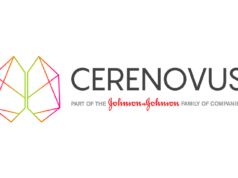 Johnson & Johnson has announced that its Cerenovus business has launched the single largest global registry, the EXCELLENT Registry, to collect and analyse stroke-inducing blood clots removed from the brain with its EMBOTRAP II revascularisation device, a next generation stent retriever used in mechanical thrombectomy. The company also receives European CE mark approval for novel stroke technology designed for difficult to extract blood clots.
Johnson & Johnson has announced that its Cerenovus business has launched the single largest global registry, the EXCELLENT Registry, to collect and analyse stroke-inducing blood clots removed from the brain with its EMBOTRAP II revascularisation device, a next generation stent retriever used in mechanical thrombectomy. The company also receives European CE mark approval for novel stroke technology designed for difficult to extract blood clots.
The EXCELLENT Registry will enrol up to 1,000 ischaemic stroke patients in as many as 50 clinical sites in the USA and Europe. Real-world evidence will be collected on all patients and clots will be preserved and studied to determine how different clot characteristics including size, composition and density may impact or relate to patient comorbidities, clinical outcomes and revascularisation rates.
“This is a landmark registry study that will provide real-world data on the EMBOTRAP II device while advancing the scientific community’s understanding of how variations in blood clots correlate with treatment and outcomes,” said Daniella Cramp, Cerenovus president.
That extensive clot research conducted by Cerenovus was the basis for the development of the EMBOTRAP II device, which features a unique dual-layer design that allows physicians to maintain engagement and control of a broad range of clots with minimal compression during removal. The device was cleared by the US Food and Drug Administration (FDA) in the USA earlier this year and has been available in Europe since 2016.
CE mark approval of novel device for thrombectomy-resistant clots
While advances in thrombectomy have made it standard practice, about 20% or more of ischaemic stroke cases remain resistant to the procedure due to the nature and the composition of certain blood clots. In an effort to fill this clinical need, Cerenovus has developed the Geometric Clot Extractor (GCE) revascularisation device, a novel stroke technology shown to retrieve various thrombus types, whether fibrin-rich thrombus (hard) or RBC-rich thrombus (soft). The company received CE mark approval in the European Union for the device earlier this month and is conducting a controlled evaluation study prior to its commercial launch to assess its clinical utility and potential advantages over existing technologies.
“We are excited by both the clinical insights the EXCELLENT Registry will provide and the possibilities for GCE in helping to bring the benefits of mechanical thrombectomy to stroke patients that are difficult to treat,” said Cramp. “We have a deep commitment to meaningful innovation through the development of evidence-based solutions that give patients the best chance for a high quality of life after stroke.”













